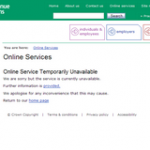The mere fact that Saturday’s BarcampUKGovWeb happened at all would have been enough in itself; but the assembled group of influential, inspirational and interesting people made for a fantastic day. At one point in the afternoon, I remember looking at the schedule and getting depressed at the countless interesting sessions I’d missed. It’s been a long time since I thought that of a (more conventional) conference. But I left with a slightly empty feeling: lots of questions, some of them very deep indeed, but no simple answers, and very few ‘action points’.
The best lesson I can draw from the day’s proceedings is this: Just Do It. The day itself was proof. We all arrived with a common purpose, but no specific agenda. The framework was set in advance, and proceeded to fill itself. We all got stuck in, and it just worked.
You’ve got Steve Dale’s example of just getting a Drupal installation into place, within a fortnight, to shock the client into a response. Or the MySociety approach of accepting ‘The System’ can’t or won’t deliver, and just getting on with it. Or my own WordPress-based crusade, I suppose. How to decide if Twitter or Seesmic has a role in government? – start using it, and let’s see.
Since Saturday, I’ve heard of one person who’s started a blog, and one person who’s decided to get to grips with Facebook. Dave’s (relatively simple) Pageflakes example has drawn some interest. I wonder how many had ever edited a wiki before signing up for the event? These are all baby steps, but they are the only way people will get the big picture. (Welcome aboard, guys.)
I firmly believe ‘the shift’ has happened, and government risks being left (even further) behind unless it exposes itself to the new world out there. COI’s Transformation / Rationalisation isn’t a bad thing in itself: the worst excesses needed to be reined in. But if we can agree what not to do, can we start agreeing what we can or should do?
Let’s start small: a Directgov/COI blog, please. Then maybe a WordPress (MU?)-based blogging platform for Civil Service uses (like Microsoft did). A tie-up with Basecamp or London-based Huddle, to encourage lightweight project management methods. But the best idea of the day came (I think) from Graham from DIUS: a parallel version of Directgov in wiki form, allowing external experts to suggest improvements which might improve the ‘real’ version. Sheer genius. Let’s just do it.
 Prepare yourself for the next ‘IT incompetence’ story:
Prepare yourself for the next ‘IT incompetence’ story: